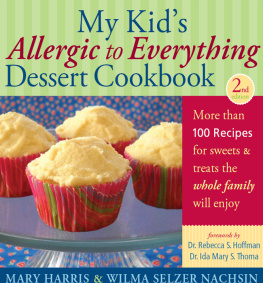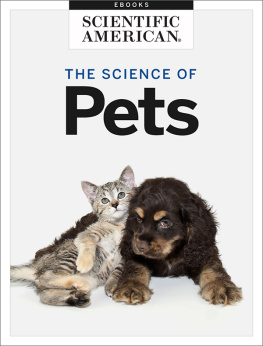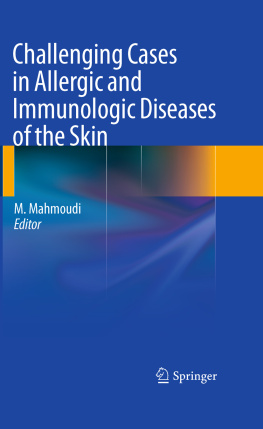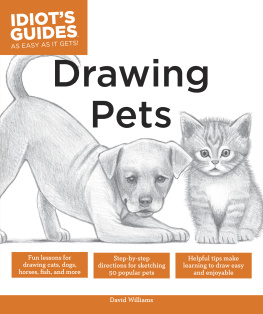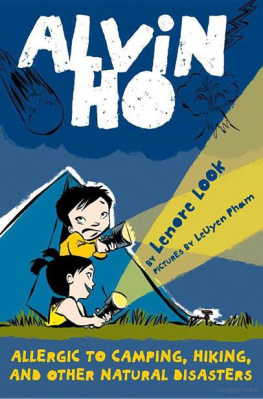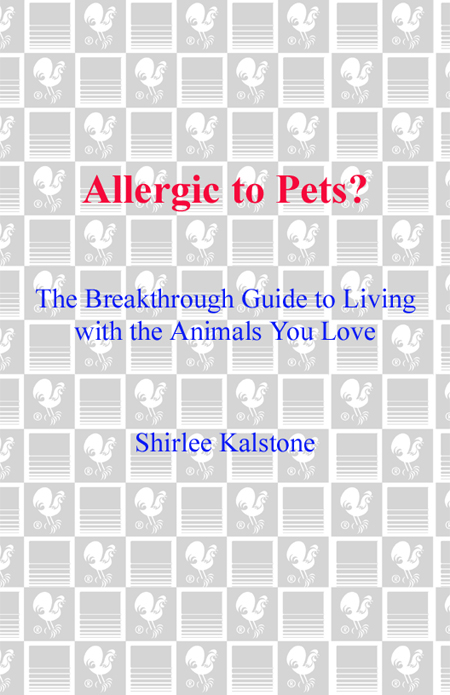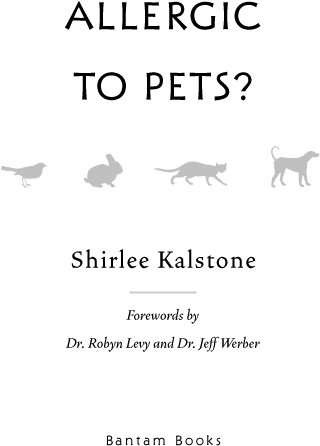I wish to thank my husband, Larry Kalstone, and my agent, Joan Raines, for encouraging me to write about this complex subject, which affects the lives of so many pet owners. I hope the information herein helps readers to better understand what causes their allergies to pets, and how to manage them as effectively as possible.
I would also like to thank Shannon Jamieson Vazquez for pulling all the information together and making me look good. I couldn't have asked for a better editor.
Thanks as well to John Fry.
I am especially grateful to Dr. Robyn Levy and Dr. Jeff Werber, who took time away from their busy practices to read the manuscript and provide guidance, as well as to contribute the Forewords.
FOREWORD
Dr. Robin Levy Board-Certified Allergist
I hung a postcard above my bed in college that read, A dog is the only true love that money can buy, signed by Will Judy. I did not know who Mr. Judy was then, only that he knew whose love my money had bought. I've long since lost the postcard, but I never forgot the quote. The message has come back to me time and again over the past quarter of a century, as I've shared my life with the special dogs (and a cat) who have brought me more love, devotion, and smiles than I've ever paid for.
Any pet owner could easily substitute their favorite animal/ pet/breed/lap dweller for dog in his quote and see the simple truth behind those words. We humans love our pets and they love us back unconditionally. This devotion is clearly demonstrated by the reported record numbers of pet ownership in America, and according to the U.S. Census Bureau, we spent more on our pets last year than on hardware, jewelry, and candy! Forty percent of us display a picture of our pets in our home (guilty), and 16 percent keep a photo of them in our wallet (also guilty).
When my mother and I were summoned to my pediatrician's office to discuss the results sent to him from the allergist who'd tested me the week prior, I remember him saying to my mother, Dorothy, you'll have to get rid of the dog. She replied, Doctor, we'll get rid of the child first. We kept our Dachshund (my best friend) and I got allergy shots for five years. And they worked: I had a relativelyhealthy carefree childhood, filled with lots of dog and me memories. I never guessed I would grow up to become an allergist, giving people the news daily that it is their beloved furry friend that is giving them or their child the fits of sneezing/itching/wheezing they so hoped was just from pollen. I have spent the last seventeen years gleaning all that I could from the little available medical literature on this subject, as well as from the veterinary world and often from my own allergic adult life experiences with pets (yes, the allergies came back), and from the feedback of countless pet-cohabiting patients.
I have learned that most allergic people don't have to give up their pets to gain significant symptom control. Also simple, inexpensive lifestyle changes at home can yield surprising results in helping to minimize pet-related allergy symptoms. And the changes and compromises patients make in their daily life, described so thoroughly and clearly in this book, can also bring about the added benefit of improved control with prescribed medications, as well as the need for fewer medications and less medically related expenditures, which we all want. It can be a win-win situation for the doctor, the patient, their family, and the pets.
There are certainly cases in which an individual may suffer from potentially dangerous allergic reactions to pets, such as severe swelling or difficulty breathing as in the case of some exquisitely sensitive allergic asthmatics. No one would argue that the danger to these individuals outweighs the need to have a furry or feathered animal in the home. Fortunately this scenario represents but a small minority of allergic sufferers, and even these individuals may be treated to tolerate occasional pet exposure outside of the home so that they can lead productive, predictable, and flexible lives.
For most allergy sufferers, newer medications afford acceptable symptom control. Allergy injections are effective in up to 90 percent of patients in helping to control or even eliminate symptoms. Thelatest generation of allergy medications currently in clinical use or in development have the potential to block allergic responses before they ever begin, rendering the recipient virtually nonallergic!
But the best measure against suffering from allergies to pets is minimizing exposure, which doesn't necessarily mean avoiding furry or feathered pets in the home altogether. Tolerable symptom control can often be achieved with minor alterations in the home environment. My own symptoms decreased dramatically just by buying my two Bassets their own warm, snuggly beds that are kept downstairs on hardwood floors, and keeping them out of the upstairs bedrooms nearly all of the time. An even bigger change came about when I made the decision to get my pets out of my bed during my residency training. Each change came with some disappointed, guilt-inducing stares from my furry roommates, but over a short period of time, all adjusted (even me) and life (and rashes) got better.
I learned a great deal from reading this book that I can immediately apply to my patients care as well as to my own pet-filled home. There is something for every type of pet owner in this book. It would be hard to imagine that any reader could not find at least one, if not many, practical and easy steps to enlist right away to make living with Fido (or Brittney, Lola, or Zeke) a healthier and thus happier experience. Read on, and enjoy learning how to live healthier with the best love money can buy.
Robyn J. Levy, M.D.
Robyn J. Levy, M.D., heads the Family Allergy & Asthma Center in Atlanta, Georgia. She is a board-certified allergist who specializes in the treatment of adult and pediatrie allergy, asthma, and immunologie disorders. For more information about Dr. Levy and her work, please visit www.familyallergycenter.com.
FOREWORD
Dr. Jeff Werber D.V.M.
When I finished reading this book, I thought ruefully, Where was Shirlee Kalstone when I was a kid? I sure could have used her expertise.
Growing up, all I ever wanted to be was a veterinarian. My folks said that ever since I was about five years of age, that's all I talked about. As a kid, we always had dogs but never cats. I inherited many things from my dadsome good and some not so greatbut one of the worst things a kid could inherit from a parent, especially a kid who dreamed of becoming a veterinarian, was animal allergies. I tested positive for a number of foods, a plethora of pollens, and worst of all, cats, dogs, horses, sheep, goats, and cows! Would I ever consider changing my lifelong dream? Not a chance!
I never went through any phase of my life when I didn't have a dog. Cats, on the other hand, used to drive me nuts. Boy, do I remember the runny nose, scratchy red eyes, and the stuffed-up sinuses. And those crumpled telltale tissues. Everywhere. I was miserable and I was not pleasant to be around.



